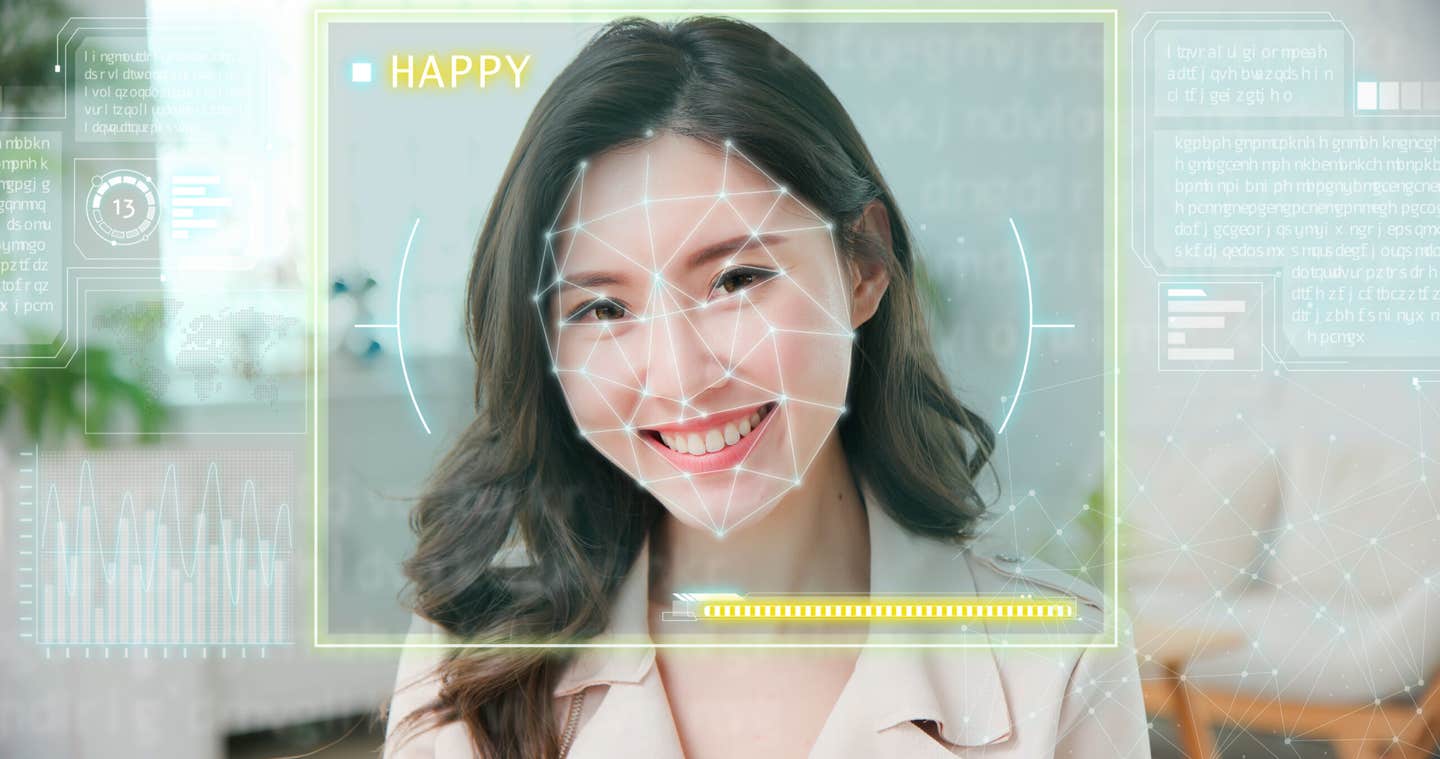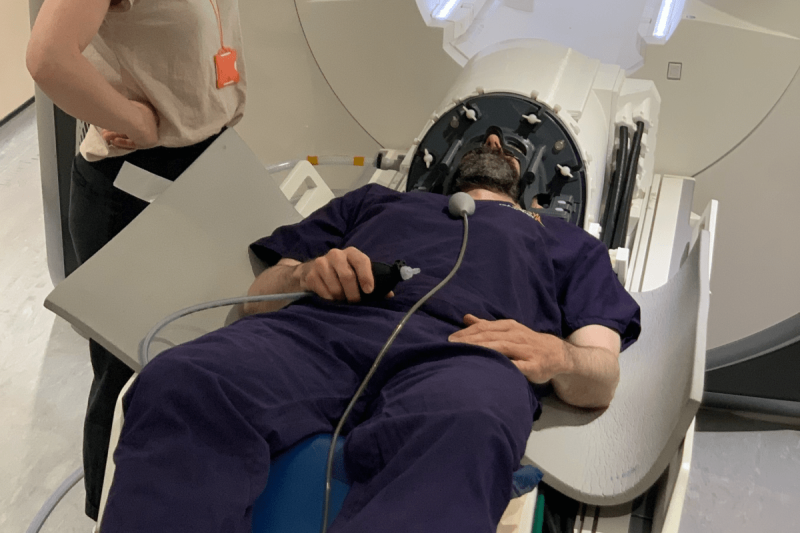Artificial intelligence understands feelings better than people, study finds
Artificial intelligence outperforms humans in emotional intelligence tests, reshaping psychology and affective computing.

 Edited By: Joseph Shavit
Edited By: Joseph Shavit

A new study from Swiss psychologists finds AI systems like ChatGPT outperform humans on emotional intelligence tests. (CREDIT: Shutterstock)
Although artificial intelligence is frequently lauded for its coding ability or its math skills, how does it perform when it is examined on something inherently human, such as emotions? A recent study from the University of Geneva and the University of Bern reports that a handful of popular AI systems (e.g. ChatGPT) may actually have superior performance than participants taking an emotional intelligence test made for humans.
Researchers wanted to explore whether machines could recognize and reason about emotions similarly to how humans do, and surprisingly, the answer was yes - and more. Across a total of five different tests of emotional understanding and regulation, an average of 81% of the six AI models used correctly answered emotional understanding questions, whereas the average human had a correct response rate of only 56%.
These findings challenge the deep-rooted assumption that empathy, judgment, or emotional awareness exists only among humans.
Testing AI on Human Emotion
The researchers used the well-established assessments psychologists use to measure "ability emotional intelligence," which has a right and wrong answer, much like a math test or personality quiz. Subjects had to choose the emotion the person was likely to feel in a specific situation, or what the best option was to help someone relax.
The AI models (ChatGPT-4, ChatGPT-o1, Gemini 1.5 Flash, Copilot 365, Claude 3.5 Haiku, and DeepSeek V3) underwent testing between December 2024 and January 2025. Each system completed the tests on ten occasions so researchers could find average scores from the models, and compare with the scores of human participants from previous validation studies.
In conclusion, each AI exceeded humans in every test. The systems displayed a high degree of agreement among themselves, which indicates that they produced similar emotional judgments, even in the absence of direct training on the evaluation of emotions.
"LLMs can not only identify the best option among many available ones, but also create new scenarios that suit the desired context," says Katja Schlegel, lecturer at the University of Bern's Institute of Psychology and lead author of the study.
The Science Behind the Tests
Two tests, the Situational Test of Emotion Understanding (STEU) and the Geneva Emotion Knowledge Test - Blends (GEMOK-Blends), assessed the participants' ability to recognize emotional states in different situations. Other tests, the Situational Test of Emotion Management (STEM) and subtests from the Geneva Emotional Competence Test (GECo), evaluated emotional regulation and emotional management.
Each question presented a realistic situation and asked for the best answer that demonstrated emotional intelligence. For example, if Employee A stole an idea from Employee B and then presented it to their supervisor and received praise, the appropriate answer is not to confront Employee A or seek revenge, but to subtly approach a supervisor with a calm discussion. This is an act of emotional control.
"The results showed significantly higher scores for the LLMs - 82%, compared to 56% by human participants," explained Marcello Mortillaro, a senior scientist at the Swiss Centre for Affective Sciences. "This indicates that these AIs not only comprehend emotions, but also possess an understanding of functioning with emotional intelligence.”
AI as a Test Writer
After witnessing AIs excel at the tests, the researchers pushed ahead: can an AI write the tests itself? They prompted ChatGPT-4 to write new scenarios with multiple possible responses for an emotional intelligence measure, noting the best response for each. Then, 467 human participants took the original and the AI-generated versions of the tests.
The results were unexpected. The AI-generated tests were just as demanding as the human-made ones. Participants scored similarly on both versions of the test, and the items were equally clear, realistic, and varied. Statistically, the two tests had "equivalent difficulty."
This indicates that ChatGPT-4 not only knew how to reason about emotions, but it also understood the mechanics behind how psychologists have measured that reasoning. It produced the logic of a human test maker - in a fraction of the time.
Limits and Small Differences
The researchers still explored whether hidden flaws were in the AI-written tests. Some questions written by humans were rated as slightly clearer to participants, and the varied scenarios in the AI tests were less diverse than in the human tests, but the differences were not large enough to change the overall conclusions.
Importantly, the AI was not simply copying other questions. In fact, 88% of the items were noted to be completely original items, not paraphrases of items written originally. The tests created by AI displayed similar correlations to vocabulary and other measures of emotional intelligence, just like the original tests — evidence suggesting that the AI was testing the right abilities.
What This Study Means for the Future of Affective AI
For some time, affective computing focused on training machines to recognize emotion through face expressions, voice tone, or word choice — but the systems often couldn't respond in weave real emotional understanding. This may not be a problem with modern large language models, however, and they may have already implicitly learned emotional reasoning patterns just through learning from human text.
Although researchers are cautious to say that what these models do is they don't "feel" emotions, they do say the models can obviously understand emotions and react appropriately to them. A tutoring bot, designed so, can recognize when a student is frustrated or a healthcare assistant that picks the right comforting response, can still offer genuine help without human emotions of its own. The AI can give an appropriate typical reaction, just not have its own human-like emotional experiences.
These themes begin to open new doors for emotionally aware technology for use in therapy, coaching, and education when done safely and responsibly, and with experts facilitating awareness.
Research findings are available online in the journal Communications Psychology.
Related Stories
- AI models now show higher emotional intelligence than humans, surprising psychologists
- Human vs AI Music: Study Reveals Surprising Emotional Reactions
- Artificial intelligence is learning to understand people in surprising new ways
Like these kind of feel good stories? Get The Brighter Side of News' newsletter.
Shy Cohen
Writer



